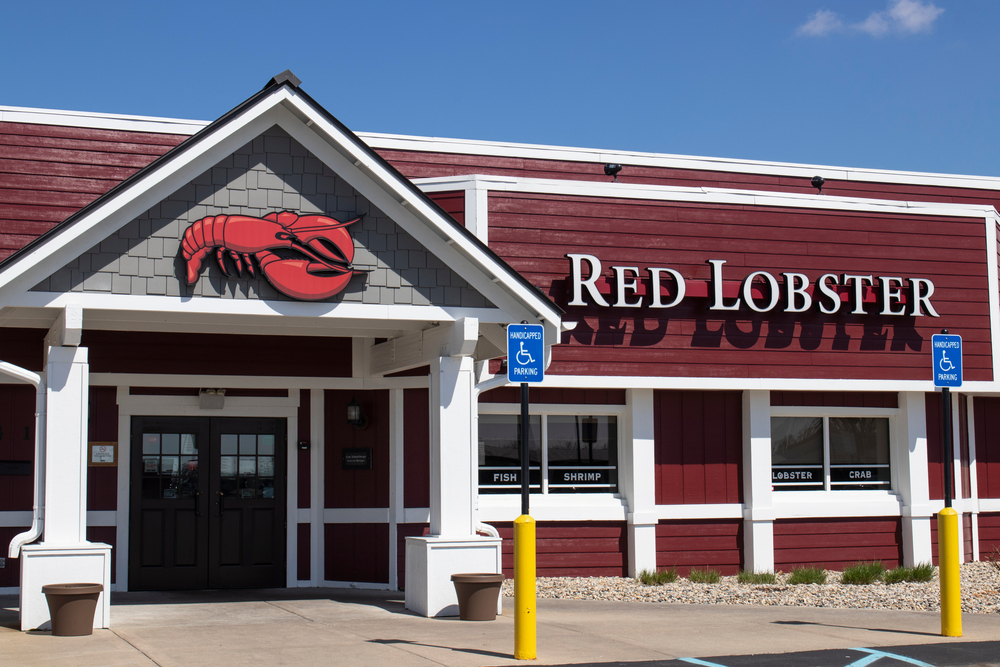New York City, New York, U.S.A.-based data firm Debtwire believes bankrupt restaurant chain Red Lobster, which filed for Chapter 11 bankruptcy in May, has several legal avenues it can explore to pursue litigation against former minority owner Thai Union.
In his firm's bankruptcy filings, CEO Jonathan Tibus said Red Lobster is investigating the impact of the undue control Thai Union exerted through proxies including former CEO Paul Kenny and other Thai Union-affiliated entities and individuals, “and whether actions taken in light of these parties’ varying interests were appropriate and consistent with applicable duties and obligations to Red Lobster.”
According to the chain, Thai Union exerted “outsized influence on the company’s shrimp purchasing,” including Kenny’s alleged decision in April 2023 that Thai Union continue producing shrimp for Red Lobster that “did not flow through the traditional supply process or bid cycle or adhere to the company’s demand projections,” Tibus said.
Additionally, in “apparent coordination with Thai Union and under the guise of a ‘quality review,’ Kenny made a series of decisions that eliminated two of the company’s breaded shrimp suppliers, leaving Thai Union with an exclusive deal that led to higher costs for Red Lobster,” Tibus said.
Tibus blamed Kenny and Thai Union for the failure of its Ultimate Endless Shrimp promotion, which the company later admitted was priced too low, costing it USD 11 million (EUR 10 million).
Sarah Foss, the global head of legal at Debtwire, told SeafoodSource these reasons may justify pursuing litigation, as detailed in a recent Debtwire report examining the possibility of the resturant chain bringing a lawsuit against Thai Union.
Depending on the results of Red Lobster’s own investigation, the restaurant chain may decide to bring claims against Thai Union based on theories of control or cooperation, the report found.
“Courts have held that shareholders trying to exercise control over a corporation have fiduciary duties similar to those of a corporate director. With respect to cooperation, the debtors could explore either a conspiracy or aiding and abetting claim,” Debtwire said.
For either claim, Red Lobster would have to show that Kenny committed a wrongful act, such as breaching his fiduciary duty or committing corporate waste, and that Thai Union participated in that act, resulting in harm to Red Lobster, Debtwire said.
“The question would be whether [Kenny] breached [his fiduciary] duties by circumventing the company’s normal supply processes by directing Thai Union to produce shrimp for Red Lobster regardless of the latter’s need or eliminating lower cost suppliers and requiring the purchase of higher cost shrimp from Thai Union,” Debtwire said.
Red Lobster could also explore a claim of tortious interference with business relations.
“Such a claim requires proof that Red Lobster had the reasonable probability of a business opportunity and the defendants interfered with that opportunity, which caused monetary harm to the company,” Debtwire said. "Specific opportunities that could be examined are Red Lobster’s potential business relationships with other, cheaper shrimp suppliers.”
Yet another legal avenue Red Lobster could take includes a complaint of unjust enrichment against Thai Union, according to Debtwire. The restaurant chain could argue that any financial gains by Thai Union due to its supplier relationship with Red Lobster should be disgorged and transferred to the plaintiffs.
However, it is likely that Red Lobster and Thai Union are negotiating behind the scenes to settle the case out of court, Foss said.
“Generally, what happens most of the time is the businesses settle,” she said.
While that process unfolds, Orlando, Florida, U.S.A.-based Red Lobster is exploring a sale beyond its current owner, Fortress Credit, Foss said.
Fortress Credit took over ownership of Red Lobster upon its bankruptcy filing, but Red Lobster is likely to conduct a bidding process in which other buyers can offer to take over Red Lobster. By mid-July, other major buyers may ...








